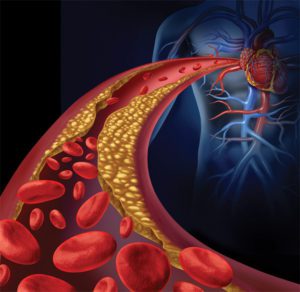 February is heart awareness month, which reminds us to consider the fact that our heart health, risk factors and lifestyle are in our own hands. Since heart disease is still the leading cause of death in both men and women, what better way to understand and implement heart healthy prevention?
February is heart awareness month, which reminds us to consider the fact that our heart health, risk factors and lifestyle are in our own hands. Since heart disease is still the leading cause of death in both men and women, what better way to understand and implement heart healthy prevention?
Cholesterol is a natural substance that the body produces through the liver. It’s waxy and circulates through the bloodstream, feeding the heart and brain. But when cholesterol is derived from foods like saturated fats and trans fats, the body overproduces LDL, which is the “bad” cholesterol.
HDL is the “good” cholesterol our bodies crave. Without HDL, our brains would not function properly, and we would suffer from other bodily disorders, like heart attacks and strokes. HDL helps to remove the bad cholesterol (LDL) from the body. High levels of LDL may also adversely affect overall health by causing atherosclerosis (plaque in the arteries), cardiovascular disease and other disorders.
Cholesterol Numbers:
Your total cholesterol is made up of both LDL and HDL numbers. Your family doctor may order tests in order to check your numbers. The healthiest combination of both types of cholesterol measures HDL, good cholesterol,) around 40, and LDL, bad cholesterol,) around 100.
Risk Factors:
Cholesterol, along with triglycerides in the blood, can form atherosclerosis, which as previously mentioned is the plaque that builds up in the arteries. Excessive plaque can increase the chances of a coronary heart attack, heart disease, stroke and other related issues. Triglycerides are the fat that is stored in the bloodstream from the excess fat in our diets. Triglycerides combine with the high LDL level and create harmful plaque buildup.
Diet & Exercise:
Because high levels of LDL and triglycerides are both associated with food intake and the body’s inability to burn fat, adopting healthier habits can help lower cholesterol naturally.
• Eat a healthy diet
• Quit smoking (contributes to atherosclerosis)
• Start a regular exercise program
• Cut back on alcohol and processed foods
Schedule an annual exam with your physician to check your cholesterol levels on a regular basis. If you have high cholesterol, your doctor may prescribe medication to help lower the overall cholesterol levels. In addition to medication, a change in diet can help to decrease LDL and Triglycerides, as well as raise your HDL to optimum levels.
Incorporate Healthy Foods and Nutrients
in Your Diet
A significant contributor to successfully lowering LDL is the addition of soluble fiber, omega-3 fatty acids, mono-saturated fatty acids (MUFAs), powerful antioxidants and lutein, to your diet. However, in order to see the benefit of ultimately lowering bad cholesterol, an overall healthy diet must be maintained. This includes decreasing, and in some cases, completely eliminating processed foods from your diet. Cholesterol lowering foods can drop your bad cholesterol levels by 5-10% within a few weeks; your cardiologist can speak with you about a personalized dietary plan.
Medications:
The most common cholesterol lowering drugs are statins. In recent years there have been other medication developments that may help to lower your total cholesterol levels.
It’s always best to speak directly with your physician before completely changing your diet or exercise program. Your doctor will construct a precise plan to suit your specific needs and incorporate some of the foods mentioned above along with a coordinated strategy.
Dr. Joseph Freedman MD, MBA
Dr. Freedman brings many years of experience as a cutting edge cardiologist specializing in the prevention, diagnosis, and treatment of all cardiac disease. He trained at the prestigious Cleveland Clinic, continually ranked #1 in Cardiovascular Care, where he focused on cardiac imaging. He achieved five board certifications in Internal Medicine, Cardiology, Comprehensive Adult ECHO, Nuclear Cardiology and Cardiac CT. During his tenure as the lead noninvasive cardiologist at Florida Medical Center in Ft. Lauderdale, he helped lead the hospital to achieve Level 5 chest pain certification, the highest designation of cardiac excellence.
He has spoken on national health care radio programs and has appeared on local news, highlighting the latest in cardiovascular care. Dr. Freedman prides himself on being an advocate for the patient. Every patient is unique, and he works carefully with leading local and national experts to make sure patients receive the best specialty procedural care possible for that particular case. Dr. Freedman has done research in cardiac MRI studies of the heart, in nuclear scanning, and has participated in the research trials of several leading cholesterol-lowering drugs. Dr. Freedman also has extensive experience in pulmonary hypertension and ran a large clinic in Broward County for these specific and often undiagnosed patients. Dr. Freedman speaks Spanish as well.
Cardiac Care Group
3208 Chiquita Blvd S., Suite 110
Cape Coral, FL 33914
(239) 574-8463
www.flccg.com
This information is for educational purposes only and is not intended to replace the advice of your doctor or health care provider. We encourage you to discuss with your doctor any questions or concerns you may have.










